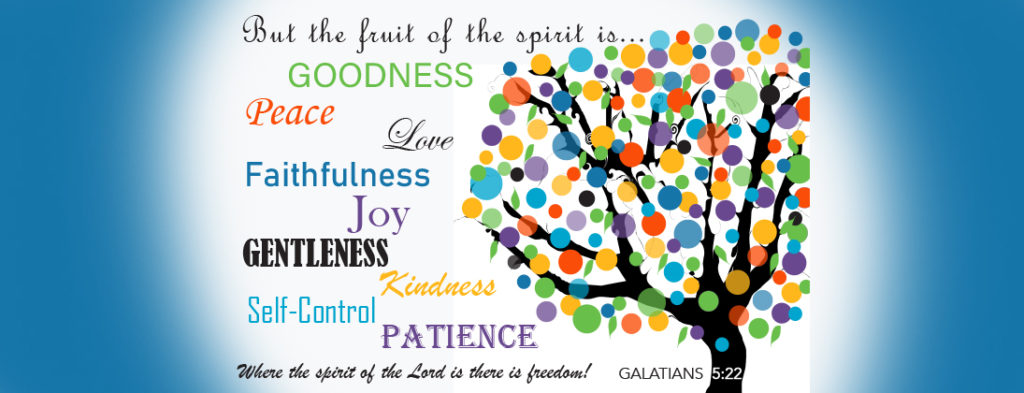“Rotten Fruit“
When you’re hungry for a piece of fruit, do you intentionally seek out something rotten? Of course not. But it’s not always so easy to tell whether fruit is rotten. While some fruit (like peaches) gives an immediate visible clue of having turned rotten, fruit with firmer skin or even a hard shell (like apples and pineapples) can look perfectly fine while beginning to rot on the inside. It’s not enough to avoid buying or biting into rotten fruit; sometimes we only find out it’s rotten once we’ve bitten into it.
Our theme this Lent in worship and home devotions is “Fruit of the Spirit.” Each Wednesday evening and the Sundays between them focuses on a different “fruit” of the Holy Spirit, as listed by the Apostle Paul in Galatians 5:22-23. There’s nothing “rotten” about love, joy, peace, patience, kindness, generosity, faithfulness, gentleness, and self-control. We don’t have to ingest them or share them with others only to discover that they taste bad or cause indigestion. Because they’re grown within and among us by the Spirit of God, they are by definition delicious and nourishing.
Paul doesn’t just drop these verses to stand alone in his letter; they are listed in contrast to what he calls “works of the flesh.” If I were Paul’s editor, I might suggest to him that he call these “rotten fruit.” They’re listed in Galatians 5:19-21; this list is not meant to be exhaustive. You might need a dictionary for things like “licentiousness,” but enmities, jealousy, quarrels, and factions are self-evident. Take your time reading through this non-exhaustive but broad list, and note which of these “rotten fruit” have been easy for you to avoid and which have required a closer experience to discover their harmfulness to yourself and/or others.
Each of us has a spiritual biography that includes positive and negative experiences, things that grow and reinforce our trust in Jesus. For some of us, the positive reinforcement has been dominant: Being raised in or coming into a faith community where the Fruit of the Spirit is abundant and accessible has been sufficiently sustaining. Some of us also have been drawn to seek a more life-giving way than a steady diet of “rotten fruit.” We discovered through hard experience what doesn’t work and that opened us up to find what does.
Our Sundays and Wednesdays together will continue to focus on what God is building into us. But I would be remiss if I did not also acknowledge, as Paul did, that God doesn’t force-feed us. I pray that as we grow to delight in the Fruit of the Spirit, we also grow in discernment and rejection of “rotten fruit.”
Grace and Peace,
Pastor Don Wink

